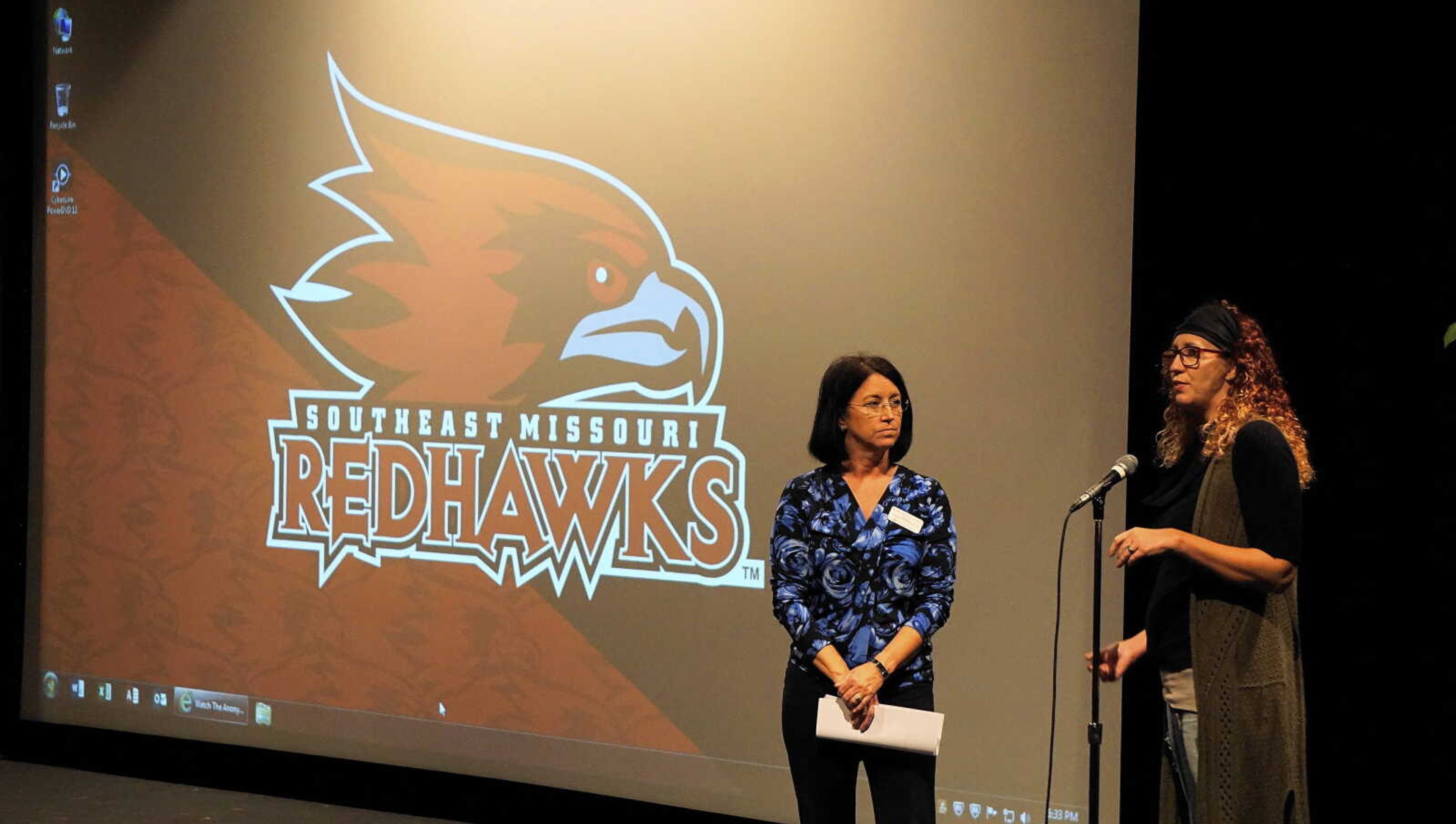Over 23 million Americans are living in long-term recovery from alcohol and other drugs, while over 20 million go untreated and suffer in silence.
On Thursday, Oct. 20, Southeast Missouri State University’s Department of Counseling and Disability Services hosted a screening of Greg Williams's documentary, “The Anonymous People,” which is a documentary about the millions of Americans who are
afflicted by the disease of addiction and the millions who are currently living in long-term recovery. More information can be found at manyfaces1voice.org.
Former Congressman Jim Ramstad (R-MN), who is also an alcoholic in recovery since 1981, said addiction cost the economy more than $550 billion in 2012.
Ramstad said in the film, “For every dollar we spend on treatment in this country we save over 12 and a half dollars, for every dollar we spend on drug courts we save over $15, so there is no question that treatment is cost effective; if you can get people into recovery you’re going to save a whole lot of bucks for the taxpayer.”
Former congressman Patrick Kennedy (D-RI) said in the film, “If the politicians would just get out of the way and listen to addicts in recovery tell them what works and what doesn’t we could actually make a difference.”
John Shinholser, president and founder of the McShin Foundation in Richmond, Virginia, explains in the documentary that America’s jails are full of addicts and alcoholics pulled together in one place. He went on to say politics is the No. 1 barrier keeping addicts from getting into recovery, and that the country needs a system that is designed to get people into recovery instead of behind bars for being an addict. Shinholser said the government is not ready to give up its huge prison complex and its rate of recidivism. Shinholser and his wife Carol McDaid founded the McShin organization, and more information can be found about the foundation at mcshin.org.
Two-thirds of American families have been touched by addiction.
“Nobody need die of this disease. We are eminently salvageable. We are well worth the trouble. We are eminently equipped to enrich this world. We write poetry, we paint pictures, we compose music, we build bridges, we head corporations, we win coveted prizes for the world’s great literature and too often many of us die from our disease … not our sin … not our weakness,” Mercedes Cambridge said in the “The Anonymous People.”
“Third Rock from the Sun” actress and author of “Guts” Kristen Johnston, an addict and
alcoholic in recovery since 2006, said, “I did one brave thing in my life, I told my story, we don’t have to keep quiet, I’m going to tell whoever I damn well want. Whether we like it or not, people do need other people to pave the way, so frankly I’m Amelia Earhart as far as I’m concerned, only with a bottle of vicodin instead of a plane.”
The Institute on Drug Abuse states addiction is in fact a disease, but a stigma remains that suggests addicts choose to be this way.
Mary Ann Farmer, a counselor in the Department of Counseling and Disability Services,
said she wants students to know Southeast cares about the crisis of addiction in our nation and would like to start a recovery organization on campus.
Farmer said she contacted Kristi Booth, a social work major at the university, about the idea.
Booth, who said she has been an addict in recovery for 13 years, said the idea is to change the conversation from problem to solution and change the ideologies of students while in college by offering students who may be an addict in recovery, or a person touched by it, a recovery-based support group where they can share their stories and give hope to one another.
Terri Crain, a counselor at the Gibson Recovery Center, said something needs to be done, because there are too many people in jails and prison facilities for being an addict. Felons cannot obtain employment because of the stigma, and families are being ripped apart from this disease and the unjust laws that keep them from getting the help they need.
Booth also put together a Q&A handout that was offered at the event. One of the questions posed was “If a student organization was formed on campus would you consider attending as a student in recovery or as an ally in support of those in recovery?” To be a part of the organization, contact Booth at (573)-837-8773 or by email at kristi1booth@gmail.com for more information.






